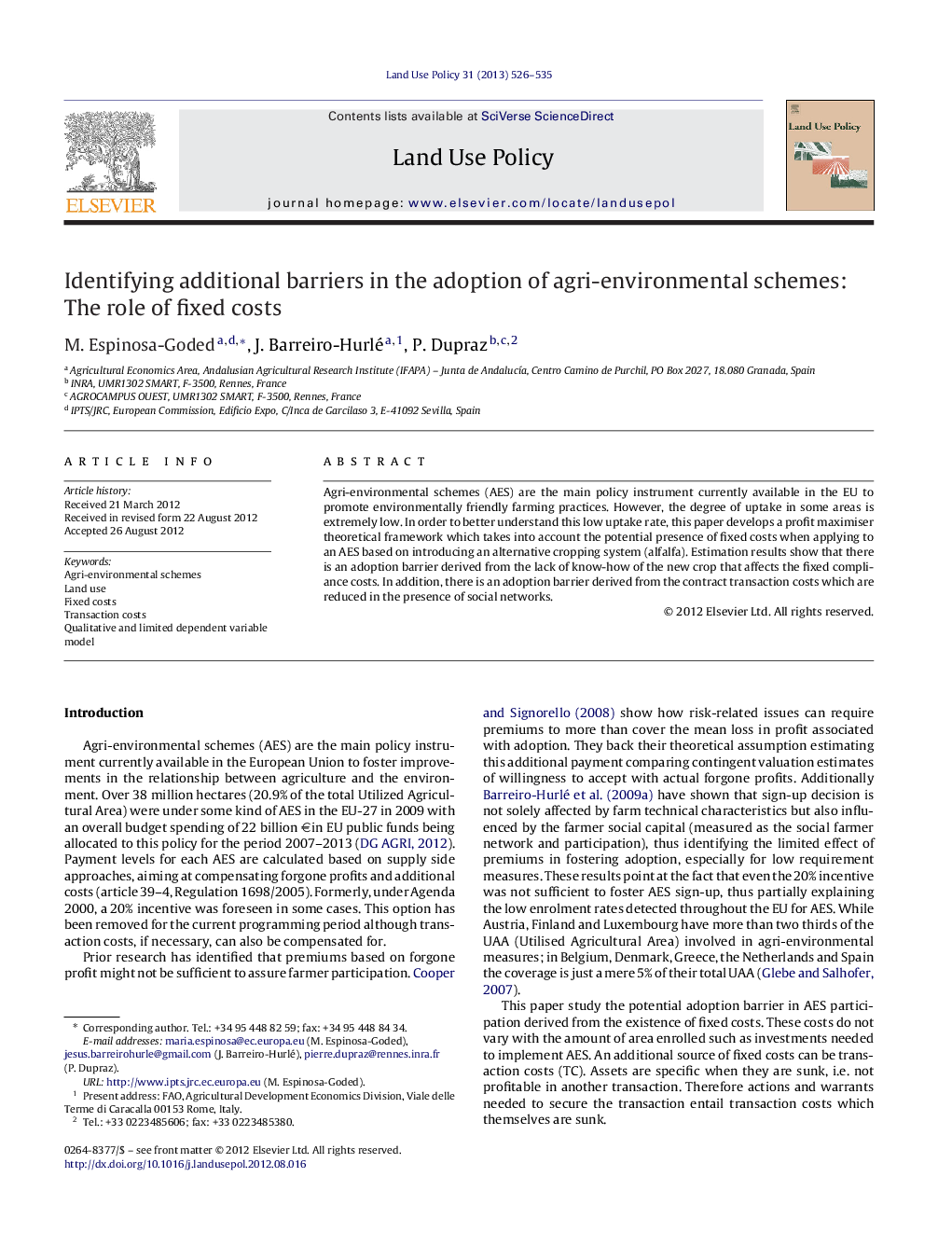| کد مقاله | کد نشریه | سال انتشار | مقاله انگلیسی | نسخه تمام متن |
|---|---|---|---|---|
| 93109 | 160112 | 2013 | 10 صفحه PDF | دانلود رایگان |
Agri-environmental schemes (AES) are the main policy instrument currently available in the EU to promote environmentally friendly farming practices. However, the degree of uptake in some areas is extremely low. In order to better understand this low uptake rate, this paper develops a profit maximiser theoretical framework which takes into account the potential presence of fixed costs when applying to an AES based on introducing an alternative cropping system (alfalfa). Estimation results show that there is an adoption barrier derived from the lack of know-how of the new crop that affects the fixed compliance costs. In addition, there is an adoption barrier derived from the contract transaction costs which are reduced in the presence of social networks.
► The adoption of an agri-environmental Scheme based on the introduction of a new crop is modelled.
► There is an adoption barrier derived from the presence of fixed costs.
► The fixed costs are based on transactions costs and the new crop know-how.
► Non-linear premiums and social networks could improve the adoption of agri-environmental schemes.
Journal: Land Use Policy - Volume 31, March 2013, Pages 526–535
